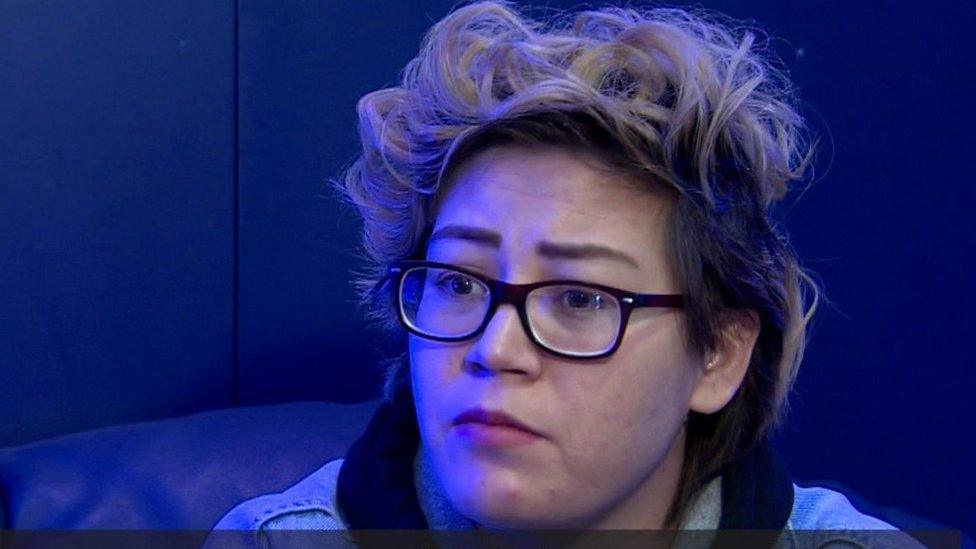Afghan interpreter says he finally feels safe, after UK move
- Published
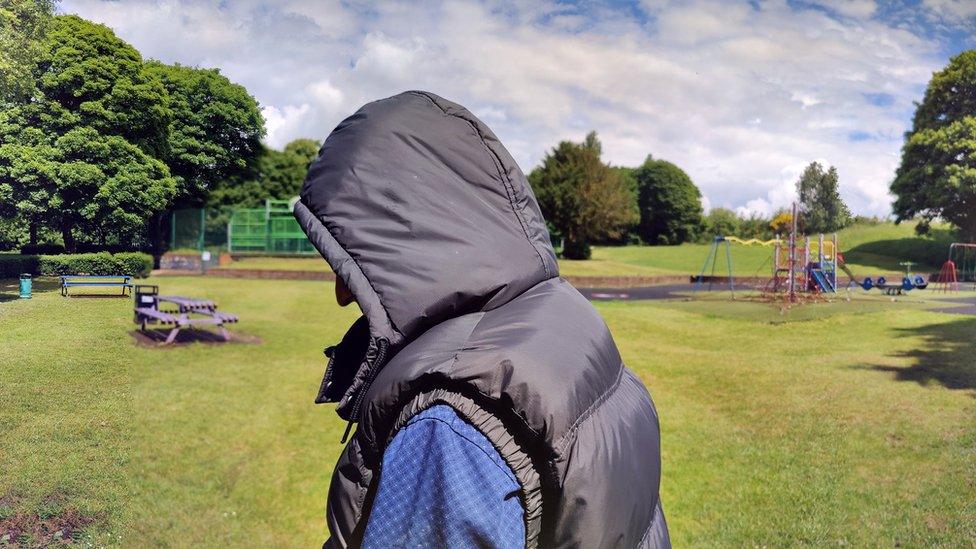
Ahmed said he had made a "grave mistake" thinking Afghanistan would eventually be safe for him and his family
A former interpreter for the British Army who fled Afghanistan fearing for his life said he finally felt safe, after settling in the West Midlands.
Ahmed went into hiding when the Taliban threatened to kill him for assisting UK forces.
He and his family, who are among thousands of Afghans flown to safety in 2021, are now making a new life for themselves in Walsall.
"In Afghanistan - every second, I thought I was going to die," he said.
Ahmed, not his real name, is anonymous to protect his relatives and colleagues who remain in the country.
The interpreter spent several years relaying enemy communications, liaising with senior military commanders, until Taliban soldiers warned him to leave his job before his family came to any harm.
Fearing for his safety, he left Afghanistan to live in several countries, including Pakistan, and hoped his links to the British Army "would be forgotten about".
Bomb blast
But when he returned home to Afghanistan in hope of settling again, it dawned on him his family would always be in danger.
"That was my grave mistake," he said. "I realised when I went back to the country. We cannot go back to our own village. Our family has black sheeps (sic)... they are in hiding."
He recalled when he and his five-year-old son had nearly been killed close to their home.
"We were walking and there was a bomb blast. My son ran back and hugged me.
"He said 'tell them don't bomb'. He was scared. These were the things that we couldn't stop."
The country fell into the hands of the Taliban just two weeks after Ahmed was flown to the UK in 2021, and he learnt of his country's fate while in a bridging hotel in Manchester.
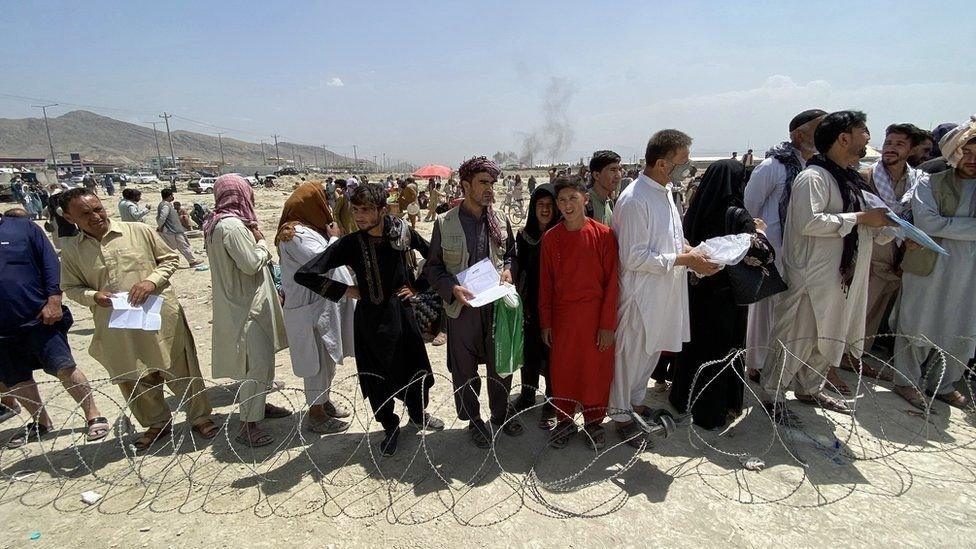
Many Afghans waited outside the airport in their country's capital Kabul, trying to flee in August 2021
"Every single person was shocked. I didn't have any idea that it would be a very quick thing. There was no warning sign," he said.
After several weeks of staying in hotels in Manchester and Sheffield, Ahmed, his wife and three children were placed in temporary accommodation in Walsall, where they remain today.
Ten months on since his evacuation, he said the West Midlands "now feels like my home country".
About 150 Afghan families have settled there and they are doing what they can to contribute to the area.
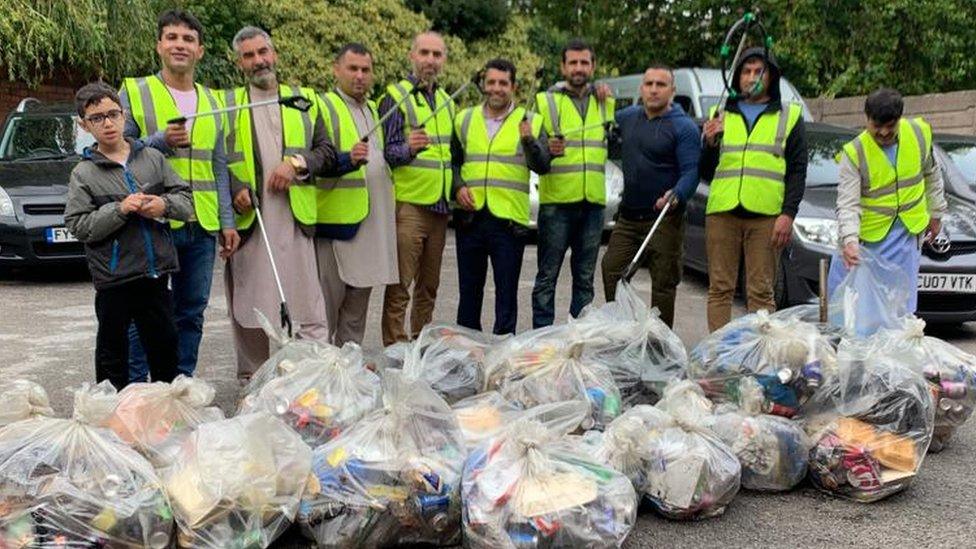
A number of Afghans living in and around Walsall have done things including litter picking to help out in their new community
"One of the big assets we have is not funding, or a building, but a community behind us," said Fahim Zazai, who helps refugees sent by the Home Office to the town.
He knows all too well about displacement after fleeing his homeland more than 20 years ago, seeking asylum.
"I've been supported by strangers in the past so I want to do something similar - pay something back and contribute and help others," said Fahim, who founded Walsall's Afghan Community & Welfare Centre.
As well as gathering donated household items and clothes for newly-arrived families, the community centre holds weekly events.
During Ramadan, volunteers cooked and delivered Iftars to refugees who remain in bridging hotels across the Midlands.
"Walsall now feels like home... I finally feel safe," said Ahmed, whose younger sister, brother and former colleagues remain in hiding in Afghanistan.
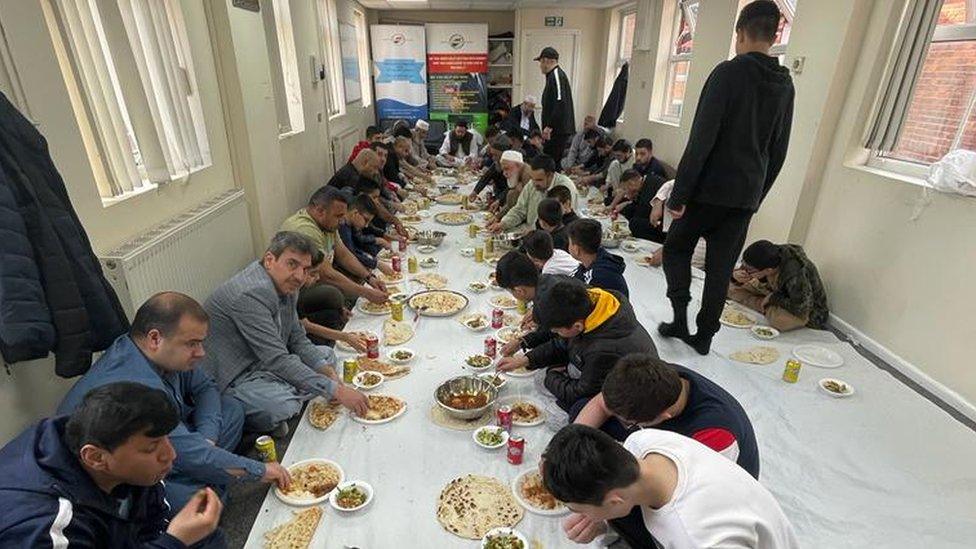
The Afghan community in Walsall gather every week, including during Ramadan, enjoying feasts together known as Iftar
Despite the warm welcome from many, Ahmed said he had been the target of several racist remarks by people who had told him to "go back home".
"You can't stop racism, [but] they have never been on the front line," he said.
"If you're sitting at home and just thinking 'these refugees came and are taking all the benefits'... they never know what happened."
He is now looking for a job, ideally utilising his interpreting and translation skills as he speaks five languages.
He does not expect to be returning to Afghanistan any time soon.
"There is no hope left," he said.
"Everything is gone now. We thought everything would get better but it's not. We can't even visit our country."
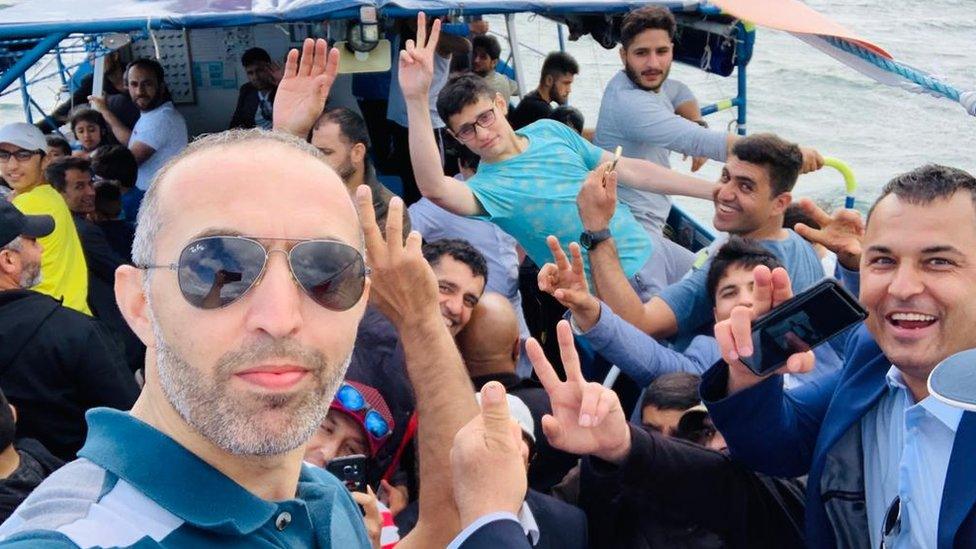
Fahim Zazai organised this boat trip because Afghanistan is landlocked and many people had never seen the sea
Fahim said he was navigating a tricky situation at the moment.
He said because there was a great deal of public support for Ukrainian refugees, he was concerned many Afghans and other refugees felt forgotten.
"People do feel abandoned because the priority is no more there," he said.
"There is urgency in Ukraine, with what has happened and it's bad that people have left their homes. We have all the sympathy they deserve and we support them.
"We give them the safety they need, but at the same time Afghans, especially people who are still stranded in Afghanistan and people who want to leave, feel forgotten."
He said he hoped media coverage would remind people there were many who had fled war across the world that needed help.
"If you live under the Taliban they are bringing the same policies from 20 years back.
"There is no change. We hear in the news what they are doing with women and people who aren't happy with their policies - they are locked up.
"It still isn't safe for many people and why we must support people who need to leave.
"It is the international community's responsibility to help."

Follow BBC West Midlands on Facebook, external, Twitter, external and Instagram, external. Send your story ideas to: newsonline.westmidlands@bbc.co.uk, external
Related topics
- Published26 May 2022
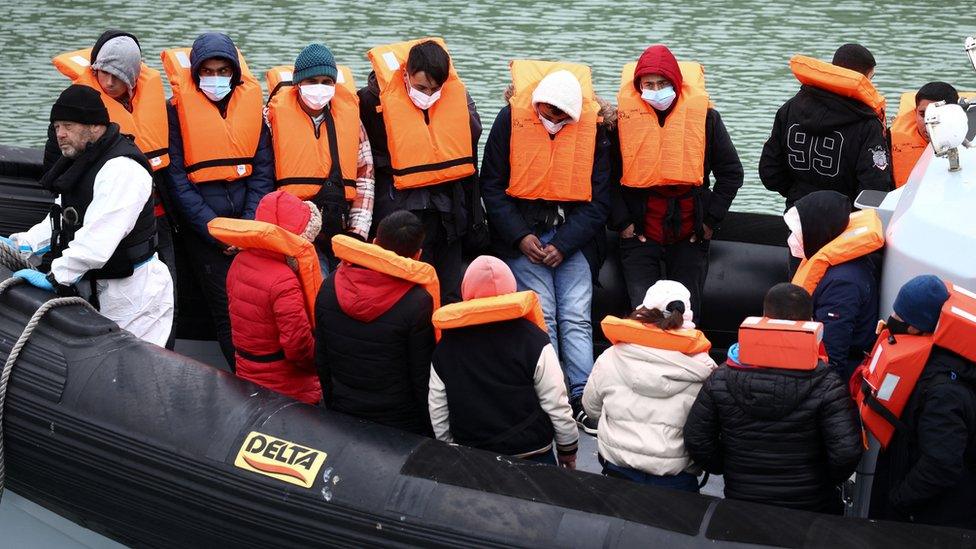
- Published25 May 2022
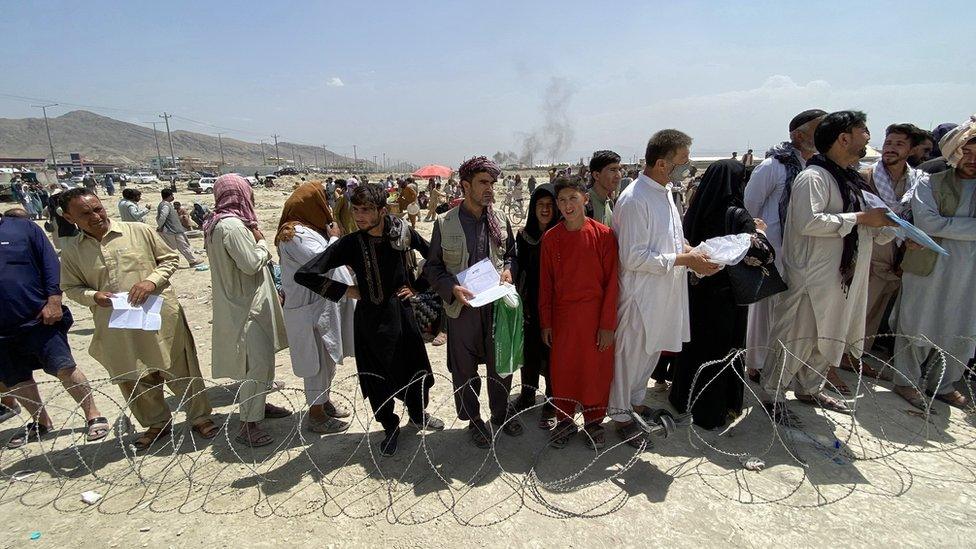
- Published16 August 2021
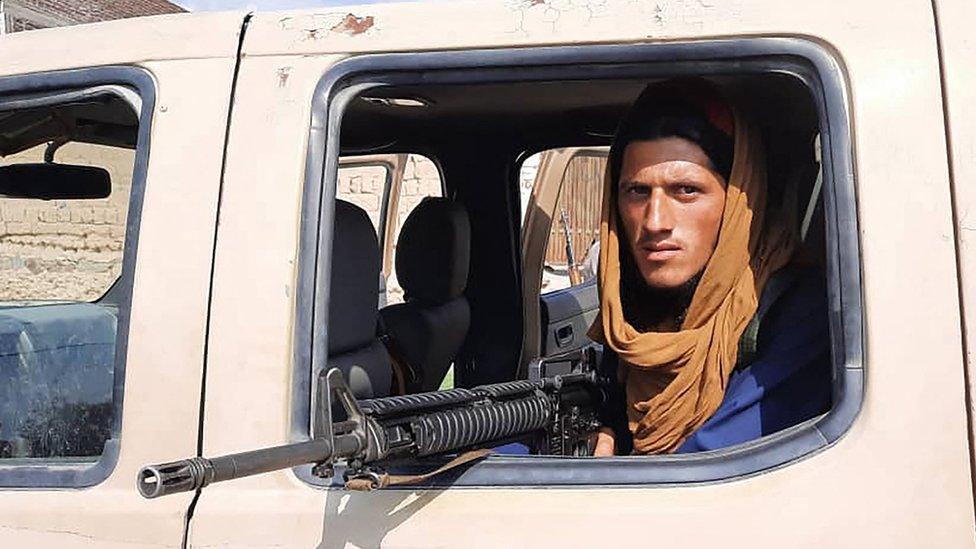
- Published20 April 2022
